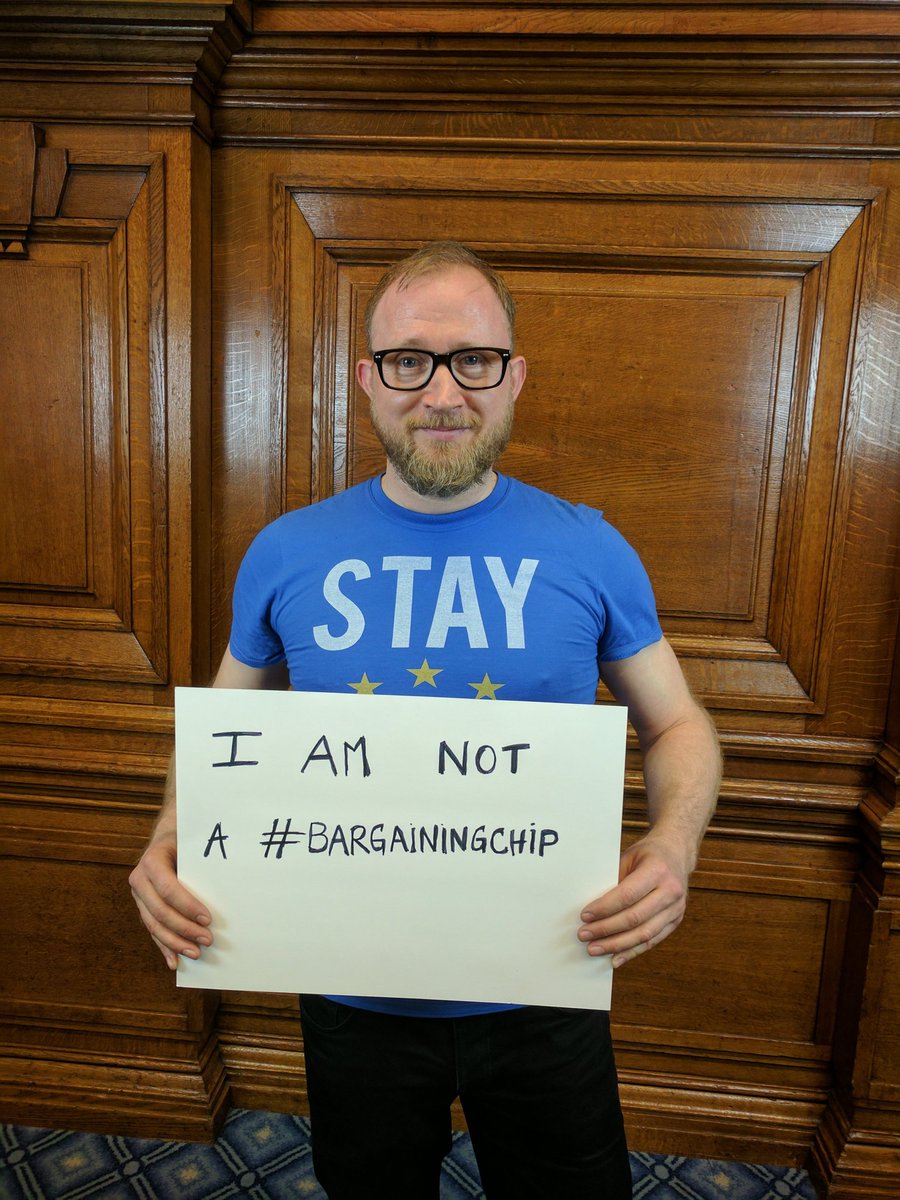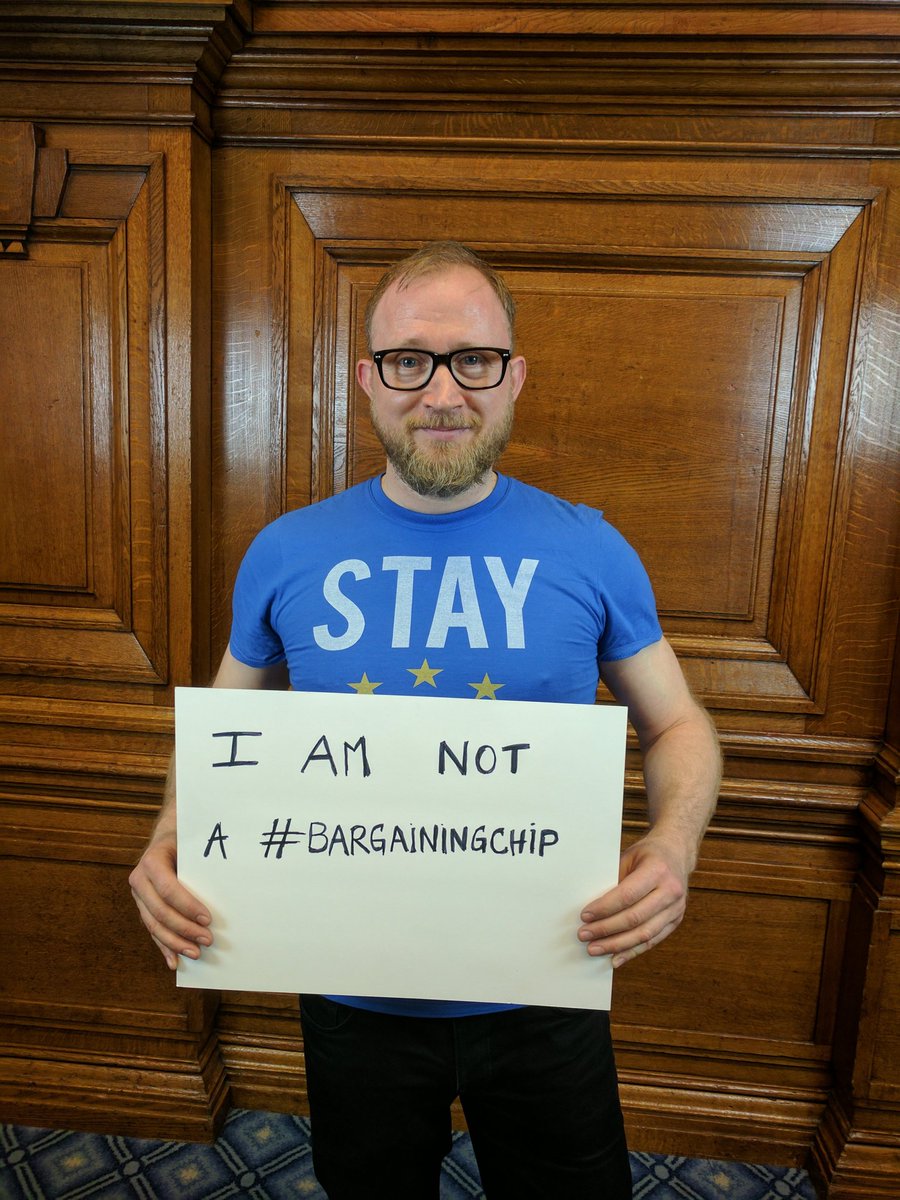
Since last week, I am a British passport holder. After a long time and spending a lot of money, I now hold this valuable travel document. It’s an EU edition, thank you very much – if you don’t have one, I suggest you get one while they’re still available. I am now a dual citizen, that class of people who are by identitarians often suspiciously regarded as somehow disloyal. Indeed, how can you hold more than one national identity and be loyal to both? Or was that more than one thought maybe?
‘Membership has its privileges’
The answer is simple really: my European identity contains both my German and British identities nicely. In fact, now that I think about it, as idiotic as Brexit is a venture (don’t believe me – believe one of David Davis’ Spads, who has now broken ranks), it has helped me define myself more clearly: I am (and will always remain) an EU citizen. I am a German Anglophile by birth and upbringing, respectively. I am a proudly pro-European British citizen now. With all of those come privileges, responsibilities, and rights.

You bet!
It was the assault on my rights as an EU citizen that brought me to the decision to end the continuous uncertainty I had been subjected to – against all leave campaign promises regarding our status, which turned out to be porkies of an especially cynical kind, affecting Brits abroad and EU citizens (both mostly deprived of a vote) here alike. Now that I am a Brit, and hold the membership credentials that entails, I reflect back on the journey through the valley of insecurity this took.
Are you applying while European?
One of the biggest insecurities that affect EU citizens in the UK now is the spectre of discrimination. EU online support forums are full of fearful stories of unfairly priced motor insurance quotes and mortgage offers being withdrawn. Some are misunderstandings due to heightened sensitivity, but some turn out to be true. The ones that really stuck with me are the ones I pick within my professional area.
I have had reports of internships, contracts and work offers being retracted due to the EU citizenship of the candidates – normally around funding or just lack of clarity what will happen next. Nothing in writing of course – but enough to make my Spidey senses tingle.
But this is against current law, non?
Let’s imagine you’re applying while European. A central question asked as part of every recruitment process is a version of ‘do you have the right to work in the UK?’. At the moment, sure, an EU citizen does have this right. But that is – thanks to HMGov – now that’s conditional until a final agreement has been reached.
An EU citizen has the right now, but the legal status after March 2019 remains stubbornly unclear. Does that mean you can only sign a contract until the date of Brexit in March 2019? With all the best will in the world, even with a permanent residency card in hand, no EU citizen can currently honestly make that claim beyond March 2019. I recognise it is highly likely that it will be clear at some point, but is it a right and can it be guaranteed by the individual at the time of application? No one knows – and what will a nervous hiring manager do with your application now, just in case they need to go through additional hoops after Brexit or pay a migrants skills charge?
‘Please apply again’
‘Nothing will change for you’, was the Brexiter’s standard answer to my concerns – but everything has changed. My advice is of course for EU applicants (and all others) to fill in their anti-discrimination forms (adding the option ‘EU citizen’ has become a bit of batch of pride among activists), so that the actual effect of this becomes clear at least retrospectively.
What adds to this overall insecurity is that the government now has announced that EU citizens who have secured permanent residency now will have to reapply for some future system yet to be established. Way to go – adding another insecurity seems to be the flavour of the month. So, all the pain, the money spent, the insecurity gets extended – and your PR card is worth toffee as part of your current claim to be able to work in the future. How will that affect EU applicants confronted with the ‘right to work’ question in the run-up to 2019?
‘Check your privilege’
Now I know that non-EU citizens have been subjected to this type of gauntlet for years of anti-immigration rhetoric. But two wrongs don’t make a right, and just as I bemoaned the withdrawal of post study work visas for international students, which helped the UK attract and retain non-EU talent (and brought in shedloads of money), I bemoan this further erosion of the UK as a country ‘open for business’ (not to even mention ‘open to ideas’).
Looking back at achieving citizenship and passport, my European identity, and my sense of history imbued by my German upbringing with parents who remembered WW2, I spend every day hoping for a better turn of events, for myself, my EU immigrant cat (pet passport and all), those I love – and those I don’t. Brexit is kobayashi maru, the unwinnable scenario – no amount of optimism is going to change its doomed course. My speck of hope is that I now have a vote – and I hope that many others with permanent residency will come to the conclusion that they should get one too.
Should I e.g. be subjected by redundancy in the future (higher education is one the industries most affected by Brexit), I now can claim that I have the permanent right work in the UK, 2019 and beyond. But as many qualified EU workers in the UK (and their international employers) now recognise, they do not have the obligation to stay. International mobility is an asset, especially when paired with the transferable workplace skills and the languages to facilitate a smooth transition. Maybe some of us may end being able to have our cake and eat it after all.
I would like to know if you have experienced the issues I’m writing about – or can give me assurances that I’m overly worried. Have you experienced or heard of any EU citizens struggling with this? Share in the comments and let’s talk about it.

